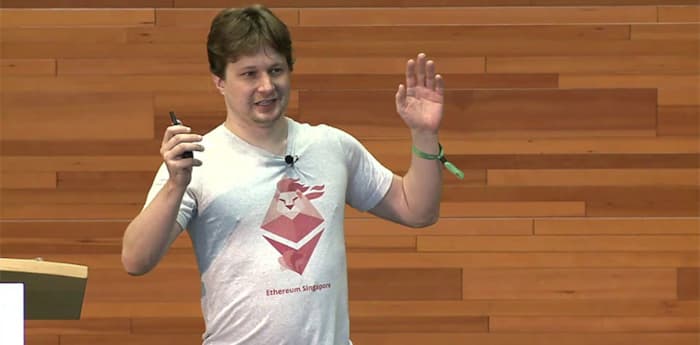Ethereum Dev Heads to Prison for DPRK Crypto Presentation
Virgil Griffith, the Ethereum developer who violated economic sanctions by providing the Democratic People’s Republic of Korea with information about cryptocurrency and blockchain technology, was sentenced to 63 months in prison.
Griffith, 39, had previously pleaded guilty to conspiracy to violate the International Emergency Economic Powers Act (IEEPA). Under IEEPA, U.S. citizens are prohibited from “exporting any goods, services or technology to the DPRK without a license from the Department of the Treasury, Office of Foreign Assets Control (OFAC).”
Griffith also helped Swartz develop Tor2Web in 2008.
In 2019, Griffith traveled to the “Pyongyang Blockchain and Cryptocurrency Conference” in the DPRK. The U.S. Department of State previously denied Griffith’s request to travel to the DPRK. At the conference:
Griffith delivered presentations at the DPRK Cryptocurrency Conference tailored to the DPRK audience, knowing that doing so violated sanctions against the DPRK.
Griffith’s presentation at the conference was titled “Blockchain and Peace.” U.S. authorities wrote that Griffith wanted to help “the DPRK achieve independence from the global banking system,” which the U.S. government explicitly opposes. In the criminal complaint, an FBI Special Agent highlighted the criminal elements of Griffith’s presentations:
At the DPRK Cryptocurrency Conference, Griffith and other attendees discussed how blockchain and cryptocurrency technology could be used by the DPRK to launder money and evade sanctions and how the DPRK could use these technologies to achieve independence from the global banking system. Griffith’s presentation at the DPRK Cryptocurrency Conference was titled “Blockchain and Peace,” and he discussed, among other things, how blockchain technology, including a “smart contract,” could be used to benefit the DPRK. Griffith identified several DPRK Cryptocurrency Conference attendees who, during his presentation, asked more specific questions of Griffith and prompted discussions on technical issues such as “proof of work” versus “proof of stake.
In November 2019, the FBI conducted a so-called “consensual interview” with Griffith. In the interview, Griffith discussed his presentation in the DPRK in more detail. He said that the government in Korea had approved of the topics within his presentation and that “attendees left the DPRK Cryptocurrency Conference with a better understanding of cryptocurrency and blockchain than when they arrived.” Griffith acknowledged that his presentation amounted to a “non-zero tech transfer” from him to other attendees. The FBI also noted that Griffith wanted to obtain citizenship in another jurisdiction.
A judge initially denied Griffith’s bail application, but Judge Vernon S. Broderick in the U.S. District Court for the Southern District of New York granted a $1 million bond and allowed Griffith to use email and keep his passport card. Griffith later violated his bail conditions by signing into his Coinbase account and attempting to access his frozen assets:
I presume my account was restricted due to the pending litigation against me. My lawyers now tell me that it is permitted for me to access my cryptocurrency on [the Exchange] . . . . Related: I’m going to need the 2FA [two-factor authentication] removed as the FBI took my devices away.
In April 2022, Griffith was sentenced to 63 months in federal prison.
U.S. Citizen Who Conspired to Assist North Korea in Evading Sanctions Sentenced to Over Five Years and Fined $100,000 archive.is, onion, archive.org, justice.gov
complaint pdf
DPRK will continue to achieve independence from the “global banking system.”
(video)
Also, Griffith’s sentence was announced earlier this month (April). I just noticed it when looking through recent USAO announcements for ones I had missed.


